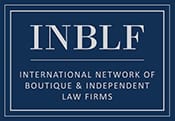It’s natural to want a clearer definition
December, 2015
Eric F. Greenberg Attorney-at-Law
A lot of packagers don’t like regulations, except when they do. But both reactions are sensible.
After all, government regulations can be an unwelcome intrusion on the operation of a free market. Except that sometimes, even those who prefer the freest possible market yearn for regulatory controls, such as a clear, reasonable regulatory standard if the alternative is having to contend with uncertainty about the rules.
So it is with “natural,” a term of increasing popularity among marketers and consumers. It’s been showing up more and more on food labels in recent years, but still there’s not a clear legal definition of the term from the U.S. Food and Drug Administration. FDA has a description of what it thinks is “natural,” but it has not issued a clear legal meaning that allows most people to agree in most situations about whether the term does or doesn’t apply to a particular food or ingredient. Now, FDA appears poised to take further action to define the concept.
In the meantime, what FDA offers to those seeking clarity is not a law, not a regulation, but a policy. FDA says “we have considered ‘natural’ to mean that nothing artificial or synthetic (including colors regardless of source) is included in, or has been added to, the product that would not normally be expected to be there.” Among the problems with this formulation is that not everyone would agree on what is artificial or synthetic. Also, importantly, the last part of the FDA policy introduces the idea that some otherwise artificial or synthetic ingredients could be permitted in “natural” foods if consumers expect them to be present, a potentially significant source of flexibility, or of uncertainty, depending on your mood.
As a result of the vagueness and incompleteness of this policy, there’s been yearning. And litigation, lots of litigation. Specifically, there have been numerous private class action cases in which plaintiffs claim that a company’s use of the term “natural,” while it might not violate federal law or regulation or policy, nonetheless violates one or another state’s law against deceiving consumers. Many of those cases result in large settlements by cowed food companies, along with changes to their label statements.
Some examples: There was a case against an ice cream brand asserting that the alkalized cocoa ingredient in its products was “a non-natural processed ingredient” containing “potassium carbonate, a man made, synthetic ingredient” and that the use of alkali-processed cocoa was incompatible with the phrase “all natural” and therefore deceived consumers in violation of California consumer protection law. In another case, plaintiffs claimed in California that a cereal maker’s claims that its “all natural” products were misleading to consumers because the products allegedly contained GMOs. A case against the maker of an alternative sweetener asserted the company’s “natural” claims were misleading because the ingredients were “highly processed” and/or derived from GMOs, all in violation of Minnesota’s consumer-protection statutes.
All these cases settled, and because companies settle cases for lots of sensible reasons but not necessarily because the claim at the core of the case is valid, none of the settlements helped add clarity to the correct definition of the term “natural” when used on food labels.
Now, I know that people grumble about lawyers saying things like this, but the fact is that the meaning of common terminology is more slippery than most of us acknowledge. A friend once explained that while most people think they know what “fresh” means, and that they think it means newly from nature, a bug-infested or rotted apple is “fresh” too the moment it falls from the tree, but who would tout that as “fresh?”
Similarly with “natural.” Perhaps not surprisingly, different people have different ideas about how FDA should approach it. Thus we have the Grocery Manufacturers Association, which, FDA says, has petitioned the agency to allow the use of the label term “natural” for foods “that are or contain foods derived from biotechnology.” And three different federal courts have asked FDA to opine about whether it’s OK to use “natural” on labels of food “containing ingredients produced using genetic engineering” or on foods containing high fructose corn syrup.
And Consumers Union, offering a nihilist approach, requested that FDA “prohibit use of the term ‘natural’ on food labels altogether,” says FDA. CU asserts that there’s too much of a gap between what people think the term means and what FDA’s policy says it means. Sara Lee Corp. advocates that FDA work cooperatively with the U.S. Department of Agriculture on a policy, and the Sugar Association wants FDA to make a rule to define the use of the term in foods and beverages, and also wants consistency among the federal agencies.
Speaking of USDA’s Food Safety and Inspection Service, which reviews and approves product labeling and ingredients before they hit the market, it has already issued its own policy about natural claims on labeling of meat and poultry products, if the party responsible for the product can show that “(1) The product does not contain any artificial flavor or flavoring, coloring ingredient, chemical preservative….or any other artificial or synthetic ingredient and (2) the product and its ingredients are not more than minimally processed.” FSIS explains, reports FDA, that this last term can include traditional steps like smoking, roasting, freezing, drying, fermenting, and others, but wouldn’t include solvent extraction, acid hydrolysis, and chemical bleaching. Except when it does: FSIS says it may make exceptions in specific situations.
As a result of these pressures, in November FDA asked the public for comments on questions such as whether FDA should make a regulation containing a definition, whether the term should be prohibited from food labels, and if use of the term is permitted, which foods should be allowed to use it. Comments are due by February 10, 2016, after which FDA will determine what it wants to do. See the Federal Register of November 12 for more details. PW
Eric Greenberg can be reached at [email protected], or visit his firm’s Web site at www.ericfgreenbergpc.com.
This article is informational only and is not intended as, and should not be considered to be, legal advice.
Be sure to check for any updated information about the topics discussed in this article.


